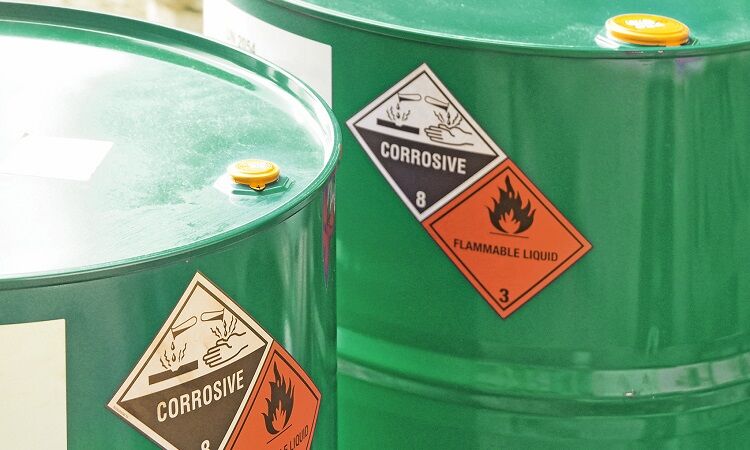Industrial Wastewater Treatment: Advanced Approaches for Effective Monitoring
Industrial Wastewater Treatment: Advanced Approaches for Effective Monitoring
Blog Article
Comprehending the Comprehensive Refine of Liquid Garbage Disposal: Best Practices and Environmental Impact Factors To Consider
The administration of fluid waste disposal is a diverse issue that calls for a comprehensive understanding of different finest techniques and their associated environmental influences. From the types of liquid waste produced to the methods utilized for collection, therapy, and final disposal, each action plays a vital role in protecting environments and public health.
Sorts Of Liquid Waste
Comprehending the various kinds of liquid waste is vital for effective management and disposal techniques. Liquid waste can be broadly categorized into numerous kinds, each needing special handling and therapy techniques.
Industrial liquid waste typically includes unsafe products, consisting of heavy steels, solvents, and chemicals, generated during producing processes. These wastes necessitate rigorous governing compliance to secure human health and the setting. Residential fluid waste primarily describes wastewater produced from homes, including sewage and greywater, which, although much less toxic, can still posture significant risks if poorly taken care of.
Agricultural fluid waste, consisting of overflow from ranches, frequently includes plant foods and chemicals that can result in environmental destruction otherwise treated sufficiently. Medical fluid waste, created from medical care facilities, includes contaminated fluids such as bodily liquids and chemicals, calling for specialized disposal approaches to avoid infection and environmental contamination.
Lastly, oil and oil waste, normally generated by dining establishments and automotive markets, can trigger serious clogs in drain systems if not taken care of effectively. Recognizing these groups promotes targeted techniques for therapy, conformity with laws, and reliable disposal approaches, ultimately promoting ecological sustainability and public health safety.

Collection Approaches
Effective collection techniques are critical for the correct administration of liquid waste, ensuring that it is collected securely and effectively prior to therapy or disposal. Various techniques are employed depending upon the kind of liquid waste generated, the quantity, and the specific characteristics of the waste.
One common approach is using committed collection containers or sumps, which are made to catch liquid waste at the resource. These systems frequently include pumps that promote the transfer of waste to larger storage containers or therapy facilities. Furthermore, mobile collection systems equipped with vacuum cleaner modern technology are employed in circumstances where waste is created periodically or in hard-to-reach locations.
For industrial settings, closed-loop systems can effectively reduce spills and leaks, enabling the recovery and reuse of fluid waste. It is additionally necessary to train personnel on appropriate collection procedures to reduce risks connected with hazardous compounds.
Furthermore, executing routine upkeep schedules for collection equipment ensures optimal performance and security. The combination of sophisticated surveillance systems can boost collection efficiency by giving real-time information on waste levels and potential dangers. Overall, effective collection methods are fundamental to sustainable fluid waste administration practices.
Therapy Procedures
Therapy procedures play an important duty in the management of fluid waste, changing possibly dangerous products into risk-free effluents or multiple-use sources - liquid waste disposal. These processes can be generally categorized into physical, chemical, and biological approaches, each customized to address specific impurities present in the waste stream
Physical treatment approaches, such as sedimentation and purification, work by getting rid of suspended solids and particulate issue. These techniques are typically the initial step in the treatment chain, effectively minimizing the load on subsequent procedures. Chemical treatments involve using reagents to reduce the effects of unsafe compounds, speed up heavy steels, or oxidize organic toxins, consequently improving the security of the effluent.
Biological therapy processes, consisting of turned on sludge systems and anaerobic digestion, exploit on the all-natural capacities of microorganisms to deteriorate raw material. These methods are specifically efficient for wastewater containing naturally degradable toxins. Advanced treatment modern technologies, such as membrane filtration and advanced industrial wastewater treatment oxidation procedures, are progressively utilized to accomplish higher levels of purification.
Including a combination of these therapy methods not just makes certain compliance with governing requirements however additionally advertises environmental sustainability by recuperating important resources from liquid waste.
Disposal Options
Just how can companies make certain the risk-free and responsible disposal of fluid waste? Effective disposal alternatives are important for securing public health and the environment. The main techniques consist of land therapy, disposal, and incineration adhered to by discharge right into local wastewater systems.
Land disposal involves the cautious control of liquid waste in designated land fills, ensuring that it does not seep into surrounding soil or water. Incineration, on the other hand, subjects liquid waste to heats, converting it into ash and gases, which require proper purification to lessen discharges. This technique appropriates for hazardous wastes that can not be treated through typical ways.
In cases where fluid waste can be treated, organizations may select organic or chemical therapy processes to reduce the effects of damaging parts prior to discharging the treated effluent into community systems. This path generally straightens with regulatory needs, ensuring that the effluent fulfills safety requirements.
Ultimately, companies must carry out detailed analyses of each disposal alternative to establish its stability, thinking about factors such as waste make-up, governing conformity, and potential risks to health and the environment. By picking ideal disposal approaches, organizations can add to a responsible waste administration approach.
Ecological Effect
The ecological influence of liquid waste disposal is a critical consideration for companies seeking to minimize their environmental footprint. Additionally, the discharge of neglected or improperly dealt with waste into surface area waters can result in eutrophication, leading to oxygen exhaustion and the subsequent death of fish and various other organisms.

To reduce these influences, organizations have to embrace finest practices such as executing strenuous waste therapy procedures, promoting recycling and reuse, and sticking to governing requirements. By taking a positive approach to liquid waste administration, entities can dramatically reduce their ecological impact while supporting sustainable advancement goals. Inevitably, a detailed understanding of the ecological effects related to liquid garbage disposal is crucial for educated decision-making and accountable stewardship of natural deposits.
Verdict
Effective monitoring of liquid waste is important for safeguarding ecological honesty and public wellness. Eventually, a detailed understanding of liquid waste disposal not only minimizes ecological impacts however likewise fosters a dedication to accountable resource administration and environmental stewardship.
The monitoring of fluid waste disposal is a complex issue that requires a complete understanding of numerous finest practices and their associated environmental impacts. From the kinds of fluid waste produced to the approaches utilized for collection, treatment, and last disposal, each action plays an essential duty in safeguarding ecological communities and public health.The environmental effect of liquid waste disposal is an important consideration for companies looking for to lessen their ecological impact. Inevitably, a comprehensive understanding of the ecological effects associated with liquid waste disposal is important for educated decision-making and accountable stewardship of natural sources.
Ultimately, a thorough understanding of fluid waste disposal not only reduces environmental impacts yet additionally promotes a dedication to responsible resource management and ecological stewardship.
Report this page